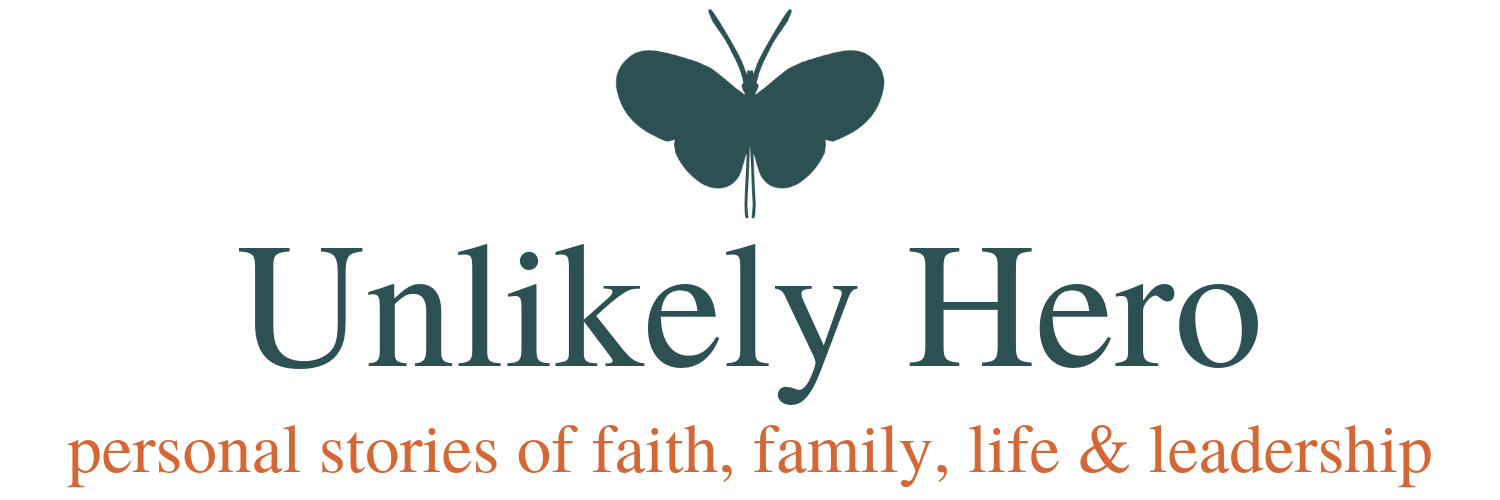Got Stress?
“Stress will kill you. Literally,” commented Stephanie.
I was sitting next to her at breakfast. We were both attending the NAHSE C-Suite Leadership experience in San Diego, California. We had spent the previous 2 days listening to speakers and dialoguing with colleagues about sustainability in healthcare and the challenges facing healthcare leaders as we work to innovate and transform the industry. As healthcare executives, we were no strangers to stress. But Stephanie’s story goes beyond what we experience in the C-Suite. She was referring to stress of a different making.
Stephanie is an Army veteran. In 1989, she survived a helicopter crash in the mountains of Korea. 19 US and South Korean service members were on the Chinook that went down. Stephanie shared with us the terrifying experience from the moment they knew the helicopter was going down, to when they were rescued. Through a series of miraculous event, all 19 souls on board survived the ordeal. The military wife/mom in me was deeply moved as I listened to this unlikely hero telling her story. I asked Stephanie if I could share her story, and she graciously agreed. I am not sure I can do it justice but I will do my best to retell the story as best as I can remember it.
Stephanie recalled that as they were bracing for impact, her whole life flashed before her eyes. She must have lost consciousness at some point because she came to and found herself looking down in the aircraft and seeing the bodies of her colleagues below her. For a moment she thought she had died and was looking down from another dimension. Then she realized she was still buckled in and hanging from an angle by the seat belt. She managed to release the belt and tumbled unto the heap below her. Everyone was alive, and the awareness surfaced quickly that they needed to get out of the helicopter as soon as possible because it was sparking and due to high fuel load could combust at any moment. Being on the top of the pile, Stephanie had to be the first to get out. As she approached the square hatch, she froze. She assumed someone must have shoved her because the next moment she was tumbling down the side of the mountain, trying her best to grab on to anything to break her fall, but with no success. She distinctly remembers that she felt a hand grab her and help her gain her footing under a small overhang jutting out from the mountain. Being the first one out, Stephane is certain that the hand of God helped her when no person was there to do it.
The other service members all tumbled out and managed to get to stable ground. They knew they needed to get to safety up the mountain. There was the risk of the helicopter tumbling down the mountain, and their best chance of rescue was at the top of the mountain. But they quickly realized they had no way of getting back up that mountain so they found shelter in clefts of the mountain awaiting rescue. It took about half a day for rescue teams to arrive. The rescuers propelled down the side of the mountain and rescued each person. Stephanie recalls the panic that set in when the rescuer got to her, and the last thing she remembered was being stuck in the arm with a needle. 3 days later she woke up in the hospital with a concussion and some cuts and bruises. She was very grateful to be alive.
Stephanie learned later that at the time of the crash, her next of kin was notified that she had perished in the crash. I can only imagine the joy and relief when they found out she had miraculously made it. I found it interesting that when Stephanie went home, no one talked about the crash. Her family never once brought it up or discussed it. It was as if it never happened. Stephanie met her future husband a few months after the crash. He was also serving in Korea. She never mentioned the crash to him. As a matter of fact, she never talked about the crash to anyone close to her or to her health care providers. She buried that experience deep. It was as if it never happened. But it did. And several years later, Stephanie started having physical symptoms that were debilitating. She was now out of the service, and nowhere in her civilian record was there information of her being in a helicopter crash. After months of tests and being told it was all in her head, Stephanie finally saw a psychiatrist who got to the root of the problem. As he talked with her to find out if she endured any traumatic experiences, she couldn’t recall any. Then in the deep recesses of her memory, something sparked. She told the psychiatrist, “I think I was in a plane crash”. The memory was buried so deep, she didn’t even know for sure. The stress of that traumatic experience was hurting her years later, and she didn’t even know it. Thankfully the work with the psychiatrist lead to Stephanie uncovering the memories and that is when the healing process began. Stephanie is thriving today. She was sitting next to me in a stylish yellow dress. She was animated and peaceful all at the same time. I was so deeply moved by her story and the power of her presence; an African American female veteran survivor who is now willingly sharing her story, partly because it’s therapeutic for her to talk about it, and partly because she wants to help others so they would not suffer as she did.
“God has a purpose in everything,” Stephanie told me. “I don’t hold on to stress. Fear cannot consume me. I remind myself to live in my purpose. Things that seem bad are preparing you for something.”
One of the ways in which she lives her purpose is to purposely sit next to someone when there is an empty seat. She doesn’t want anyone to feel rejected or ignored. I was that person on this particular morning. It was the last day of the conference. I had eaten breakfast and was sitting at a table in the ballroom towards the back of the room waiting for the final speaker. I had to leave the session a little bit early to catch a plane back to Pennsylvania. I was sitting in the back so I wouldn’t disrupt the room when it was time for me to leave. The seats on either side of me were empty. Stephanie asked if the seat was taken and when I said no, she moved next to me. And changed me forever with her story.
Stephanie survived a helicopter crash. My husband, Tex, survived a collision at sea. Our service members are facing challenges every day that we cannot even imagine. They voluntarily sign up to lay their lives on the line to protect our freedom. Tex and Stephanie came home. There are many who do not. And those who do come home often carry scars that are not visible to the naked eye. Stress (PTSD) is killing many of our military members who survived physically but took a hit mentally. Let’s go beyond just thanking them for their service; let’s advocate for quality mental health care for those who have faithfully served our country and continue to pay the price for our freedom.
As we saw in Stephanie’s story, stress and anxiety can negatively impact our overall well being over time. If you have endured a stressful event, have chronic anxiety, or have unexplained physical ailments, take some time to talk with your doctor, a counselor, or someone you trust. Talking about it is the first step on the journey to healing and restoration.
In our fast paced society, you may be running at full speed and fast approaching burnout without even realizing it. Or maybe you do realize it. Give yourself permission to make a change. Slow down. Take some deep breaths. Get some rest. Read a book. Do yoga. Go for a walk. Listen to uplifting music. Invest in yourself by finding ways to nourish your soul and nurture your mental well being.
Stephanie – thank you for your service. Thank you for your grace and resilience. Thank you for the reminder that stress can kill us, and we deserve better. Thank you for the wakeup call that we need to take better care of ourselves, and better care of each other.







